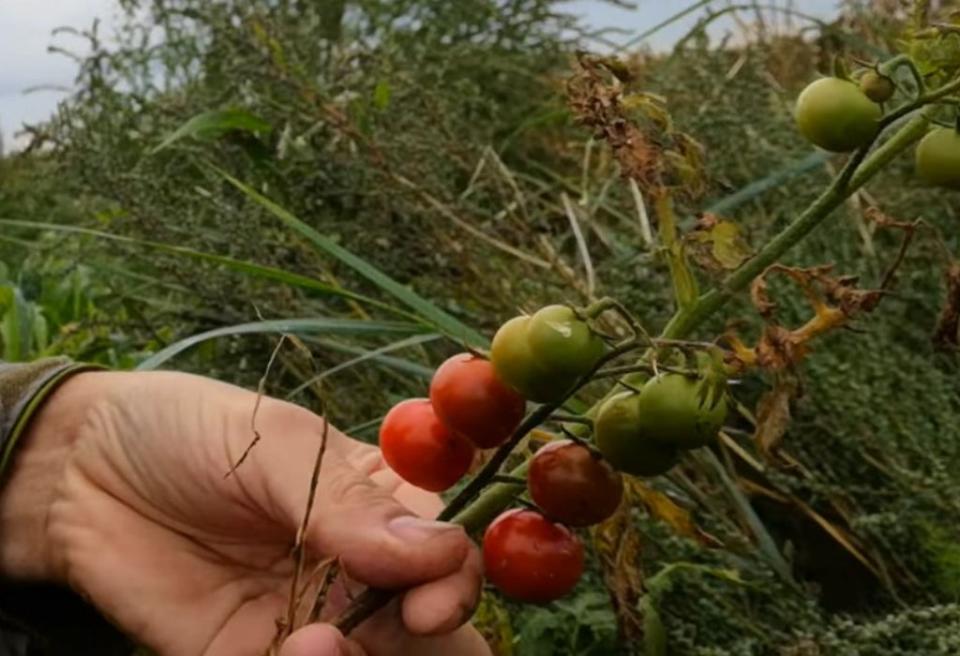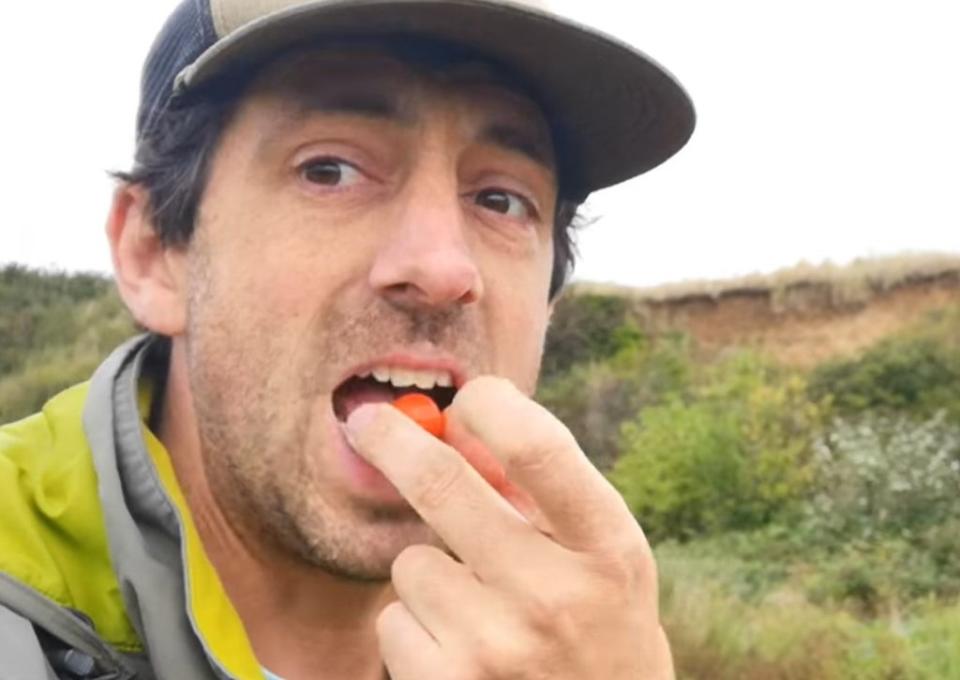‘Poop tomatoes’ found growing on shore of Kent coast where sewage pumped into sea
So much raw sewage is pouring into the sea near holiday beaches on the Kent coast that hundreds of ‘poop’ tomatoes are growing on the shoreline and from seeds in the human excrement, say appalled residents.
They have reported the sight of ripe tomatoes at Pegwell Bay in Kent, along a stretch which has been the centre of a pollution uproar.
Local wildlife enthusiast Nik Mitchell, who runs the Wildlife Conservation in Thanet page on Facebook, said “In recent years I have found lots of the evidence of raw sewage going into our rivers and seas, normally things like floss harps, plasters, applicators and earbuds.
“But poop tomatoes is a new one to me.
“The human body tends not to digest tomatoes and they are a large part of our diet.
“So as the untreated sewage hits our waters the seeds have been washing up along the coastline all around Thanet but it is only in Pegwell Bay where there are fertile conditions and they are able to grow.
“I am very in touch with Pegwell Bay and this is the first time I have noticed hundreds of tomato plants growing. They are great for snacking on whilst doing my litter picks!
“When talking about the sewage spillages I like to point out to people that it’s not just our seas being polluted it is our rivers too and it’s not just raw sewage it is heavily polluted road runoff too.”

MPs were slammed last month for voting through measures that will let water companies continue to pump sewage into our rivers which flow out to the sea.
In Pegwell Bay, there’s no rush to pick and eat the beach crop - disgusted residents have described them as ‘poop tomatoes’.
Washed into the sea from the sewage system linked to toilets, the tomato seeds have drifted to the shore and are sprouting.
Alice Toney, 31, a mum-of-two living two miles from Pegwell Bay, said "We went down there at the weekend for a stroll because the weather was good, and we were amazed to see tomatoes basically growing on the beach.
"I’d heard about it from some other local residents but I didn’t believe it - until I saw it with my own eyes.
"It’s worrying to think there are tomatoes growing there because they come from tomato pips in people’s poo and they are being fertilised by the human sewage going into the sea.
"What other damage must it be doing to the environment? It’s terrible and something should be done about it.
"I’m not keen to let my little ones run along the beach there if it is as polluted as this."
Earlier this year Southern Water was fined a record £90 million for deliberately pumping 16 to 21 billion litres of sewage into the sea between 2010 and 2015.

In August sewage went into the sea after Margate pumping station was struck by lightning and swimmers were subsequently advised not to enter the water.
Now hundreds of tomatoes growing on the coastline at Pegwell Bay six miles round the coast from Margate have been blamed by locals on the sewer outfalls into the sea.
Louise Marsh, from the Botanical Society of Britain and Ireland, which records sightings of plants including tomatoes in the wild, said "We find that tomatoes can grow wild anywhere that their seeds drop into nutrient-rich soil and have a chance to grow without being cut down.
"So they might germinate in picnic areas, near treated wastewater and in urban areas, near to bins and waste.
"But picnic areas often get mowers going over them, so you’ll find more tomato plants near sewage treatment areas because there aren’t as many people going there."
Rebecca Duncan, from The Rivers Trust charity, said "Tomato seeds aren’t broken down in the gut so tomatoes grow in sludge that is filtered out at sewage treatment works and therefore would also grow where untreated sewage washes up on the shoreline.
"The tomatoes in the video are growing along what looks like a storm beach. Things get deposited there during storm conditions when the waves reach up there.
"Then, because where they are deposited doesn’t get submerged very often, they can actually survive there too for a while they might also be more salt tolerant."

A spokesperson at the Department for Environment, Food and Rural Affairs (DEFRA) said: “There is no evidence that the tomato plants are associated with sewage discharges and the more plausible answer is that it is from sea birds feeding on nearby waste at landfill sites.
Britain’s sewer system, which is still largely Victorian, becomes unable to cope when there is too much rainwater, causing sewage works to become overwhelmed.
It is under these circumstances that water companies are permitted to release rainwater, and a smaller amount of untreated sewage, directly into rivers and the sea, to stop waste backing up in streets and homes.
But environmentalists say better infrastructure, like storage tanks at treatment works, or nature-based solutions like tree-planting, could better tackle the problem, which has become excessive.
Figures show more than 400,000 sewage ‘overflows’ took place into English waters last year, lasting a total of 3.1 million hours, compared to 293,000 in 2019.
Southern Water, who are permitted to pump treated sewage out to sea, said "Tomatoes evolved to spread by being eaten by birds and animals and the very resilient seeds not only survive passage through digestive systems but the through wastewater treatment processes.
"Tomatoes have been spotted near outfalls around the country for many years and are now self-seeding - many generations have sprung up fruited and then regrown from the seeds."
Environmental campaigners last month said it ‘beggars belief’ that MPs voted against amending a bill to stop water companies dumping raw sewage into Britain’s rivers amid concerns for swimmers on coasts.
Read More
‘Time running out’ to reach Cop26 deal, Sharma says – follow live
‘Unexpected’ US-China climate pact brings badly needed optimism to close of Cop26
‘Time running out’ to reach Cop26 deal, Sharma says – follow live
‘Unexpected’ US-China climate pact brings badly needed optimism to close of Cop26

 Yahoo News
Yahoo News 